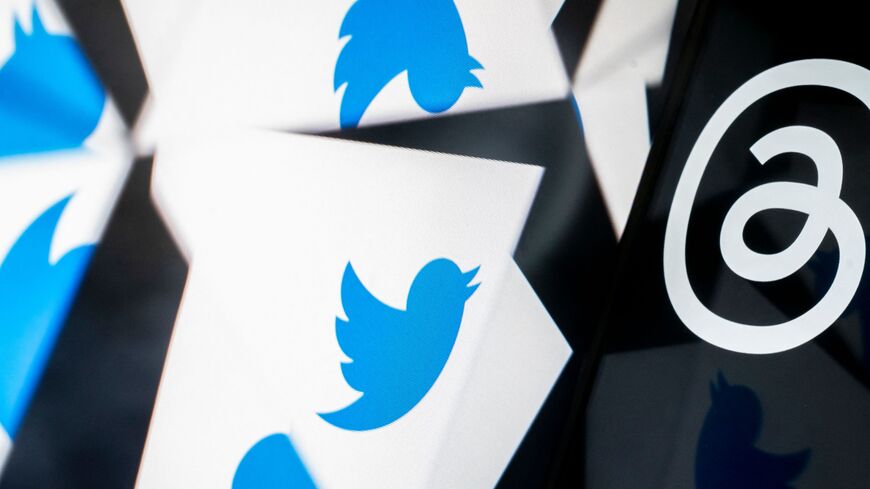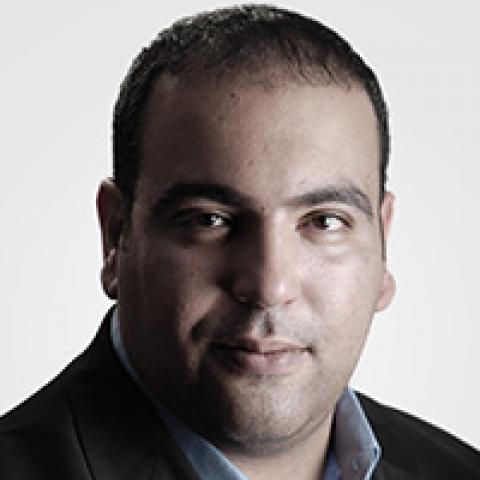For many Egyptian activists, Twitter has felt like home since the Arab Spring which began in 2011 with millions taking to the streets in Cairo and Tunis to depose authoritarian leaders. Twitter's golden moment and rise to prominence is inherently tied to activism and news sharing at the time, with the Arab Spring specifically exploding its potential for awareness, organization, and political action.
However, the recent troubles at Twitter and the emergence of Meta's Threads raises the question: will it replace Twitter as a tool for activism and organization?
Zuckerberg-Musk feud
The feud between Mark Zuckerberg, the CEO of Meta, and Elon Musk, the CEO of Tesla and SpaceX, has been escalating in the last few weeks before the launch of Threads. The tension between the two billionaires of rival social media giants has taken an unusual turn with talk of a UFC-style cage fight. While the physical fight may not happen, the war of words between the two has continued as Threads registered over 70 million accounts in one day — almost a quarter of Twitter's total.
Adding to the drama, an attorney for Twitter last week threatened to sue Meta, accusing the company of hiring former Twitter employees to build the new app and of misusing Twitter's "trade secrets and other intellectual property." Andy Stone, the communications director at Meta, denied the allegations.
In the meantime, Elon Musk used a derogatory term in addressing and describing Zuckerberg on Twitter. The language used by Musk, and lack of moderation on the platform have been made worse since the billionaire acquired Twitter.
Gender implications
Such displays by men may have made amusing content for many on the male-dominated (68.1%) Twitter. However, it has left many users fearful of its implications for Twitter as a safe space for women. Samar al-Husseiny, an Egyptian human rights defender who uses Twitter for her advocacy work, sees Musk's tweets as not only a display of fragile masculinity but also as a clear example of legally and morally inappropriate behavior that shouldn't be tolerated by the network's terms and conditions.
"Right now it feels like it won't be a safe space for women for much longer," AlHusseiny said. If the CEO of Twitter publicly insults a competing CEO and his wife, she asked, what kind of message does that give his audience regarding the limits of their own behavior?
Female Twitter users have suffered both sexual and verbal harassment on the network. Like many other Twitter refugees-in-waiting, al-Husseiny made the jump and joined Threads, hoping this would be a better alternative.
But she then found that she could not delete her account without also deleting her Instagram, another Meta company. And upon exploring the space and her new community, al-Husseiny found, "Your Instagram audience and network are very different from your Twitter audience and network. For millennial activists, one is personal, and the other is professional. Some overlap may exist, but it's best to keep them separate."
According to IANS, Instagram CEO Adam Mosseri describes Threads as a "public square for communities on Instagram for users who never really embraced Elon Musk's Twitter in the first place." While Twitter owes its relevance to international events and breaking news, Threads will intentionally not focus on them.
Chaos and censorship
Abdalla Nassef, the host of the political Tahrir Podcast, was not surprised by Mosseri's declaration. It matches Nassef's past experience with Meta account suspensions over terms violations and political content. Meta’s excessive moderation of Arabic language content is a form of passive censorship, he said, limiting the only venue for free speech that most of those users have. For Nassef, a Twitter-like app without political content is on brand for Meta’s trajectory.
But al-Husseiny disagrees on purpose of Facebook, and ultimately Threads. "Facebook was not designed to be the hub for political event organizing and protests. Instagram was originally intended for escapism until Gen Z, which uses it as their primary network, started using it for news and activism. Therefore, there is no way to predict what Threads could become," she said.
There are also privacy concerns around Threads. Nassef pointed out that Threads requires 14 permissions, including access to financial information, search and browsing history, health and fitness data, purchase history, location, contact information, user content such as images and videos, and other data, as well as sensitive information such as political or religious beliefs and sexual orientation.
Giving up all of that private information is a devil's bargain that very few serious activists would be willing to take, especially if Meta collaborates with the security apparatuses from individual countries and hands over those users' data, locations, activities, and interactions. As far as Nassef is concerned, "Threads is a Chinese media app on steroids wearing Meta's face."
Having to choose between the "chaos reigns" permissive nature of Twitter and Meta's "censorship vibes," Nassef chooses the former as the lesser evil. But he remains open to alternatives if one materializes.
And despite her distaste, al-Husseiny is also sticking to Twitter for now. "It's like your father's house. Even if it is run down and falling apart, it still feels like home," she said.








